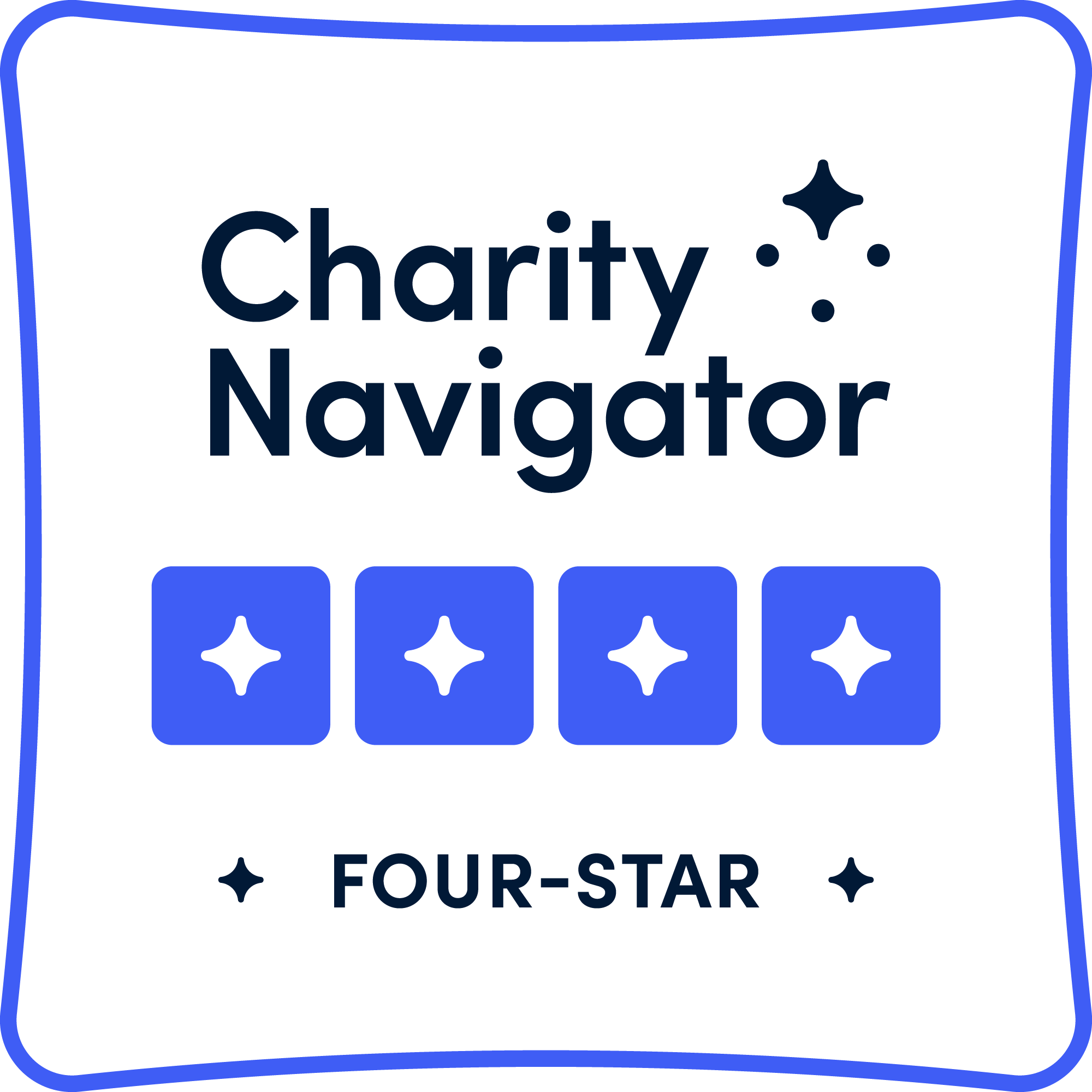Advocating for Amyloidosis Patients & Families at the US Congress
ARC participated in the 2023 Rare Disease Week proceedings organized by the EveryLife Foundation alongside five amyloidosis patient and family advocates and over 600 other rare disease advocates.
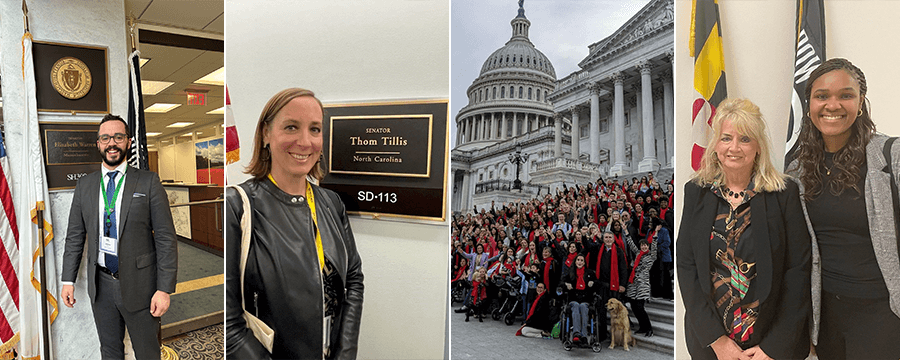
Even the flight to Washington, D.C. from a grey and gloomy Boston was challenging. Overnight snow and sleet threatened to put a hold on our work meeting with Members of Congress before we even left town. Months of planning from the EveryLife Foundation, coordinating the schedules of the amyloidosis advocates coming with our team, and multiple trainings on how to best speak with and advocate to Members of Congress were on the line. Thankfully, our plane was allowed to take off on time and as it landed safely at Ronald Reagan Washington National Airport, we knew this year’s annual Rare Disease Week was going to make a real impact.
“33,000,000 Americans living every day with a rare disease is important enough to warrant care and action from our government, but with over 95% of rare diseases still without an FDA-approved therapy, the unmet need is that much greater.”
Thanks to the advocacy of groups like EveryLife and patients from around the U.S., a lot of work is being done every day in D.C. on behalf of the nearly 1-in-10 Americans living with a rare condition. 33,000,000 Americans living every day with a rare disease is important enough to warrant care and action from our government, but with over 95% of rare diseases still without an FDA-approved therapy, the unmet need is that much greater.
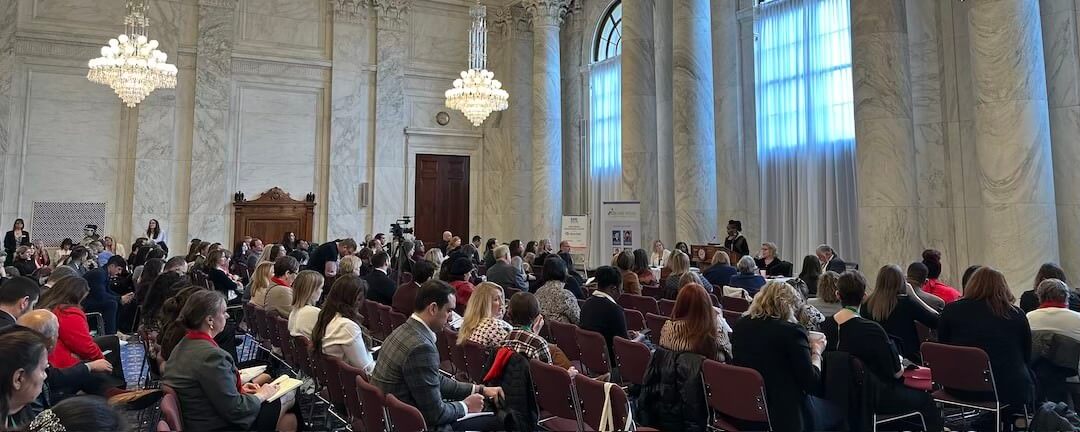
Rare Disease Caucus
ARC staff and patient advocates met with staff members of over 15 Members of Congress while we were in D.C. and in each meeting, we first discussed support for the Rare Disease Caucus. The Caucus helps bring Congressional awareness to the needs of the rare disease community and creates opportunities to address roadblocks in access to and development of crucial treatments. The Caucus gives a permanent voice to the rare disease community on Capitol Hill and is the easiest way for Members of Congress to stay connected to the rare disease community.
Jake Auchincloss, US Representative for Massachusetts’ fourth district where ARC offices are located, is already a member of the Rare Disease Caucus. Ed Markey, one of our Massachusetts Senators, is as well. Their support for the community has been truly impactful so we thanked them for their membership and urged any other congresspeople we spoke with to join themselves. You can check if your senators or representative are members of the rare disease caucus by clicking here.
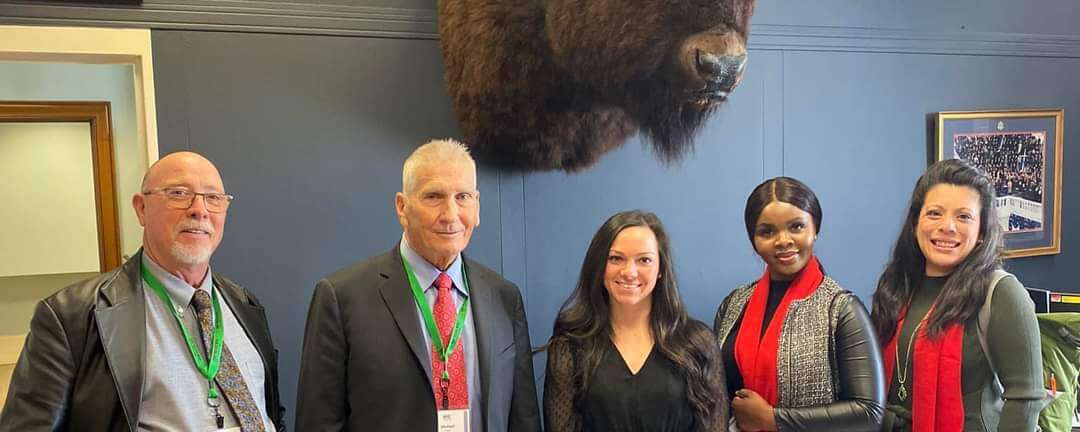
The Importance of Appropriations
The next ask ARC and other rare disease advocates brought to Members of Congress this year focused on congressional appropriations — laws from Congress that give agencies the authority to spend funds from the US Treasury. There can be a gap between the total budget Congress initially approves and the amount of money actually outlined in appropriations acts. With therapies within reach for many rare diseases, closing this gap and equipping agencies like the FDA and NCATS with the resources they need to see more treatments approved is at the heart of our mission. More funding for these programs means more treatments available, which in turn means more lives saved.
“A 2022 study showed that the conservatively estimated impact of rare diseases in the U.S. in 2019 cost nearly $1 trillion.”
A 2022 study showed that the conservatively estimated impact of rare diseases in the U.S. in 2019 cost nearly $1 trillion. We pushed Members of Congress to provide $30 million for the FDA’s Orphan Products Grant Program, reflecting the full amount of funding authorized, though has never provided in appropriations. The program awards grants to clinical investigators to support the development of safe and effective medical products for patients with rare diseases. The program has supported clinical research since 1983 and has funded clinical trials that have facilitated the approval of more than 80 products. We also urged Members to provide just under $970 million for the National Center for Advancing Translational Sciences (NCATS) — the center of rare diseases at the NIH.
Together this funding means the world to rare disease research and innovation, but represent a trickle in the bucket compared to the nearly $1 trillion burden currently placed on families and the US economy by rare diseases.
Improving Research
Even research that is already being funded can be improved with the help of Members of Congress. The FDA’s signature framework for evaluating risk-benefit of a new drug does not currently explicitly include data from the patient perspective that could be critical to informing the agency’s evaluation and, ultimately, decision on whether or not to approve a product. This patient experience data can be critical to the approval process and can be regulatory grade in certain situations.
“We know that patient experiences get to the heart of rare disease research … It’s why we’re working on an amyloidosis-specific PRO measure, and why it’s important for Congress to pass the BENEFIT Act.”
We asked Members of Congress to cosponsor the Better Empowerment Now to Enhance Framework and Improve Treatments (BENEFIT) Act, sponsored by Rep. Matsui (CA-7) in the House, and Sen. Klobuchar (D-MN) in the Senate. This legislation will amend the Food, Drug and Cosmetic Act (FDCA) to require that FDA include in the risk-benefit framework a description of how submitted patient experience data and information were considered. This action will enhance transparency and accountability, encouraging all stakeholders to prioritize developing and refining scientifically rigorous and meaningful tools and data.
We know that patient experience data gets to the heart of rare disease research. With smaller populations than common diseases, it can be difficult to examine the true impact of therapies without tools like patient reported outcomes (how a drug impacts a patient’s daily life) and natural history data (tracking the natural progression of the disease without intervention). It’s why we’re working on developing an amyloidosis-specific PRO measure, and why it’s important for Congress to pass the BENFIT Act.
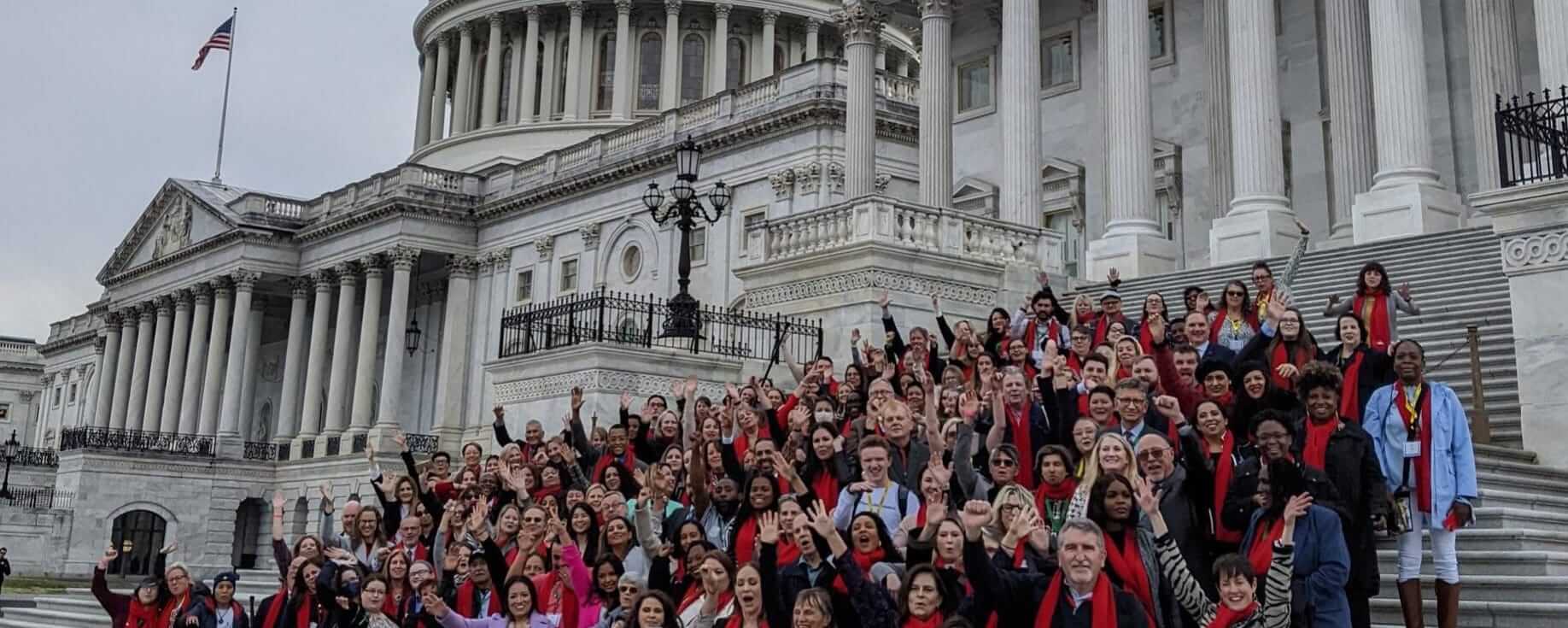
A Successful Rare Disease Week
It was incredible to be joined by 300 other patient organizations and 600 rare disease advocates advocating for rare disease patients across 300 different meetings with Members of Congress. Rare disease research isn’t a rare need, and Congress knows that. Last week and every day, we work to improve rare disease and amyloidosis research, and take encouraging steps towards a brighter future for us all.
We are immensely thankful to the five amyloidosis patient and family advocates who joined us in DC this year and look forward to continuing to advocate with them. If you would like to join us in the future (Rare Disease Week 2024 is Feb. 25-28) please don’t hesitate to reach out to us at arc@arci.org.
For a glimpse at what Rare Disease Week 2023 was like, watch EveryLife Foundation’s recap video below. Watch out for 1 minute and 37 seconds into the video to hear what one of the amyloidosis advocates who came with us has to say!
https://www.youtube.com/watch?v=IfY_CZ1C-E4
- Categories
- Lastest Posts
- Phase 3 Clinical Trial of Birtamimab in AL Amyloidosis Fails to Meet Primary Endpoint
- FDA Approves Amvuttra™ (vutrisiran) for ATTR-CM: More Options for Patients
- FDA Approves Attruby™ (acoramidis) for the Treatment of ATTR-CM: A New Option for Patients
- ARC Launches Clinical Fellowship Program to Advance Amyloidosis Care



